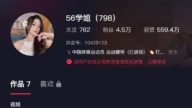【新唐人2013年10月07日讯】在中国大陆,网民们把从事网络监控的人称为五毛,网路特工,或网警。然而,随着中共对网络管控的深入,当局将重新对这200万大监控大军进行培训,培训后,部分考核优秀者,将获得网路舆情分析师证明和从业凭证,从此成为官方认可的新职业。请看报导。
据大陆媒体报导,10月14号至10月18号,《人民网》舆情监测室将举行首期“舆情分析师”培训,培训包括﹕舆情分析和研判方法、舆情危机处理与应对等8门课程。考试合格者,将获得网路“舆情分析师”的身份证明和从业凭证。
报导指出,中国约有200多万人,从事网络舆情分析师工作,这些人分布在中共党政宣传部门、和商业网站机构等。
另外,喉舌媒体《新华网》每个月也会举行一次政、企网络舆情培训班,主要针对党政领导干部和企业的高官。
中共此举,被看做是试图控制网络的又一项“大动作”。
德国之声《北京观察》栏目特约作者刘逸明:“我认为做这种培训,根本目地就是要监视网民,控制网络舆论,从而达到维护其专制统治的目地。”
大陆人士认为,网络舆情分析师,实际上是网络评论员的升级版。因为随着网络技术的发展,“五毛”起的作用越来越小了,中共为了应对舆论,为了营造官方的舆论环境,就建立了所谓的“舆情分析师”。
大陆人士张先生:“如果他真的重视民众的舆情、舆论,他就不会说是在网上设那么多敏感词、每天那么多人删贴,还鼓动网民举报非法信息啊,也不会设置网络防火墙了。”
《法国国际广播电台》引述《法新社》的报导说,中共还使用不计其数的“网评人”,在社交网路上,偷偷摸摸的发表符合党的思想的评论,他们的目地是为了“引导舆论”。确切而言,民间所说的“五毛”通常指的是这些人。
从相关报导看出,“舆情分析师”也有几种,小县城的“网路监视员”工作比较简单,只要在百度,天涯,微博等网站,打上本县的名字,看看网民对本县说了什么“坏话”,然后把“情况”交给县委领导。
舆情监测师,则属于高级的一种,使用应用“网路爬虫”技术的舆情监测高级软件,“后台有上千个处理器,还能监测到国外网站信息”。
而普通的“舆情分析师”的工作,主要就是每天坐在电脑前,在软体里输入客户设定的关键字,收集网民的观点和态度,整理成报告,递交给决策者。
他们上报的形式分成三类,有每周周报、每日短信报、每日书面报。
大陆人士张先生表示,现在的网络举报,让落马的官员越来越多,各级官员急需提前知道“舆情”,需要提前给媒体放风、提前接洽当事人等,因此对“舆情监测”也越来越要求“及时”。
张先生:“我在网上发一篇帖子揭露一个事,借着搞活动的机会作弊敛财。然后我发帖的当天,市委宣传部的就有人和我联系,要给我卡上打钱,让我帖子删掉。”
张先生表示,在收买无效后,他们就提前把网络上的服务都关掉了。
业内还有一些声称可以全网消除负面舆情的非专业舆情分析师,这些公司声称可以全网24小时监控负面讯息,然后第一时间删除。
据一家以新闻门户网站为依托的舆情分析公司透露,与他们合作的不乏中央部委。
刘逸明:“表面上看,似乎在一段时间之内确实可能为中共的专制统治保驾护航,但是长久而言,对国家、对民众、对中共自己是有百害而无一利的。因为这是一种倒行逆施的行为。”
自由撰稿人刘逸明认为,要想国家长治久安,必须像台湾那样,启动政治民主化。
采访/陈汉 编辑/宋风 后制/李智远
Two Million “50-Cent Members” Compete For Public Opinion Analyst Positions
In China, the 50-Cent Party refers to Internet commentators
hired by the regime to post comments in an attempt to shape
public opinion, i.e. online police, online spies.
As the Chinese Communist Party (CCP) strengthens Internet
control, they will hold analyst training courses for 2 million 50-Cent members.
Then they will select outstanding members and give them
certificates and jobs as online public opinion analysts.
The work becomes official recognition.
Chinese media reported that from October 14 to 18,
People’s Daily will launch its first analyst training class.
The eight subjects include analyzing public opinion,
assessment, management and response.
Successful candidates will receive a certificate
and a job license.
Reports said that there were two million 50-Cent members
working as public opinion analysts.
They are in the CCP’s propaganda departments,
commercial website industries and so on.
In addition, Xinhua News Agency holds monthly training
courses in political and business public opinion
for cadres and senior managers in enterprises.
The CCP’s move was said to be another round
of intensified online control.
Liu Yiming, a column writer for Deutsche Welle:
“I think its training purpose is to monitor netizens activities,
to control public opinion, and maintain
their authoritarian rule.”
Chinese people say that online public opinion analysts
are actually an upgraded version of online commentators.
Because with development of online technology,
50-Cent members played less and less significant roles.
In order to deal with public opinion and to create
an environment of official opinion,
the CCP launched online “public opinion analysts.”
Mr. Zhang in Mailand China: “If the CCP really cares about
public opinion, it would not be necessary to list
and delete millions of censored words each day.
It is not necessary to encourage netizens to report harmful
online information, or have a firewall.”
Radio France Internationale cited Agence France Presse who
said the CCP hired millions of online commentators to post
comments favorable towards party policies in an attempt
to shape and sway public opinion on Internet message boards.
They are the 50-Centy Party that netizens refer to.
Related reports said that there were a few kinds of analysts.
In a small county, the online monitoring job is simple,
they just need to type their county’s name into Baidu,
Tianya, Weibo etc, check what local netizens had posted,
then they submit the information to county leaders.
Public opinion monitor analysts’ jobs are high-level.
They use “web crawler” to systematically browse and update
contents or indexes of the world wide web.
General public opinion analysts sit in front of a computer
every day, entering keywords set by the “customer.”
They collect and report on views and attitudes of netizens.
They use three ways to submit reports; weekly reports,
daily text messages, and daily printed reports.
Mr. Zhang said the online reports result in many
corrupt officials being arrested.
Officials now want to know the public opinion earlier,
and be able to inform media and contact related officials
in advance.
Thus the public opinion information is needed “on time.”
Mr. Zhang: “Once I exposed an event about its embezzlement
of public donations.
On the same day I posted messages, the city propaganda
department contacted me, saying that they would
add money into my user account if I delete the posts.”
Mr. Zhang said that after he refused them,
they closed the online server sooner.
Some unprofessional public opinion analysts claimed
they could completely delete “negative public opinion.”
They said they could monitor “negative public opinion”
24 hours a day, then delete them on time.
According to a company that provides such a service,
their customers include central ministry departments.
Liu Yiming: “On the surface, it could work for a short time
to maintain the dictatorship power.
In the long-term, it is no good for the nation nor
for the people, it is even no good for the CCP itself.
It goes against the historical trend.”
Liu Yiming also said that to achieve stability, the state
must launch a democratic system like that of Taiwan.



























